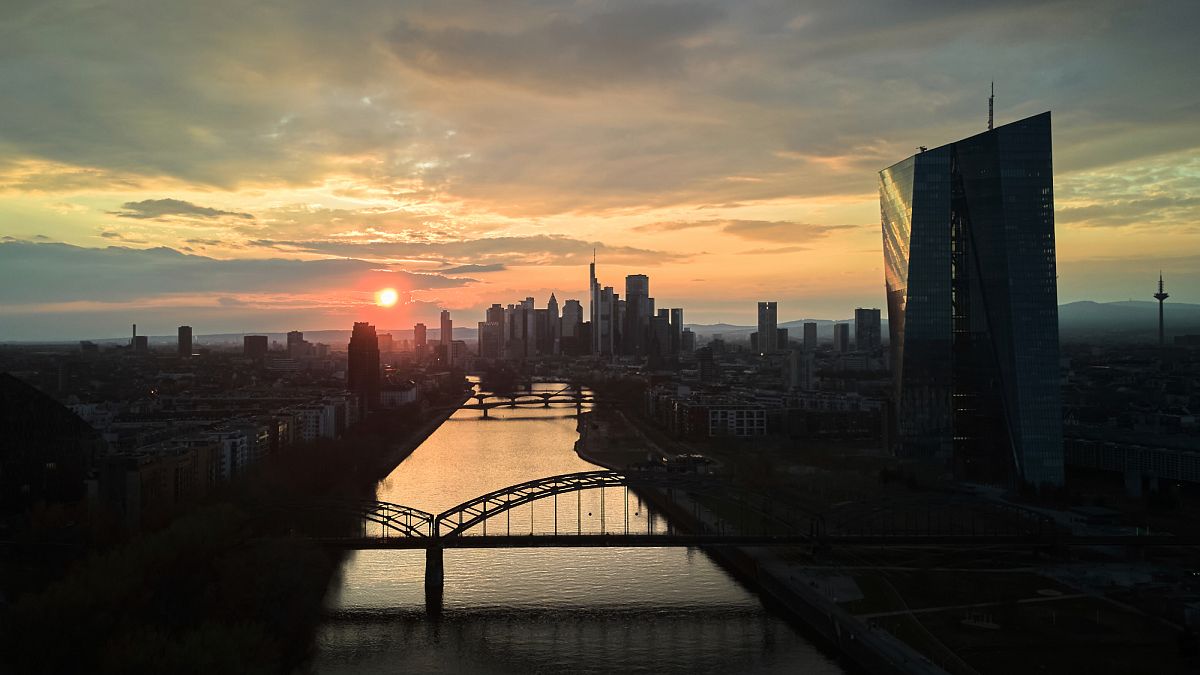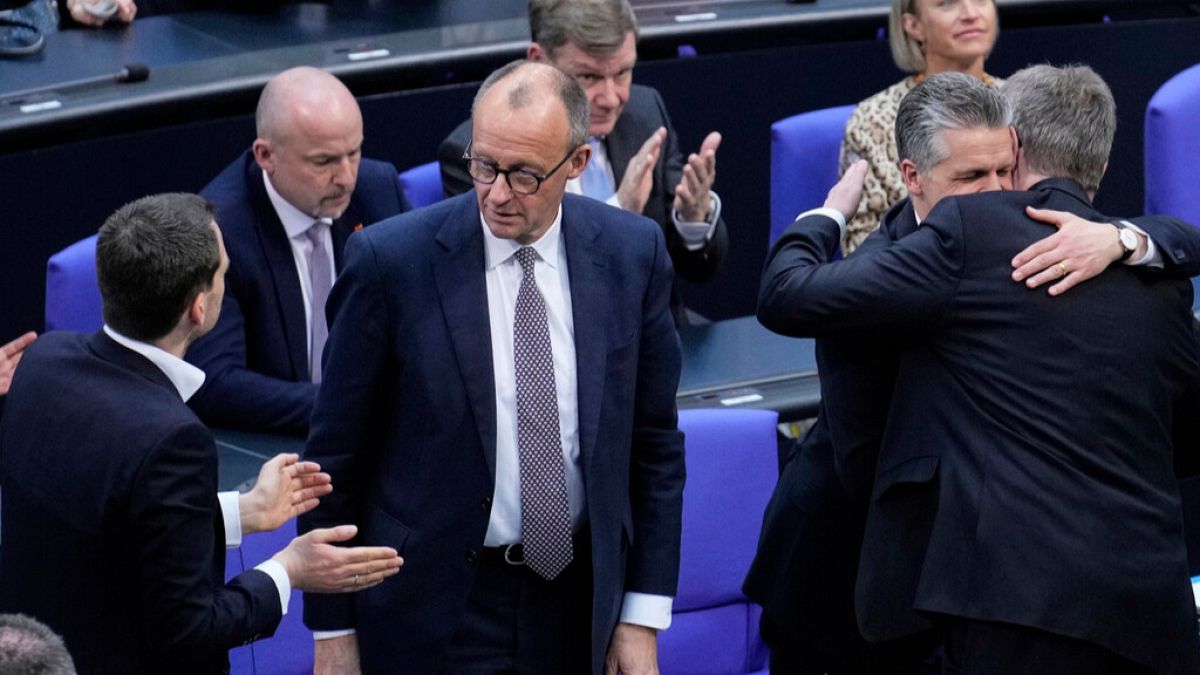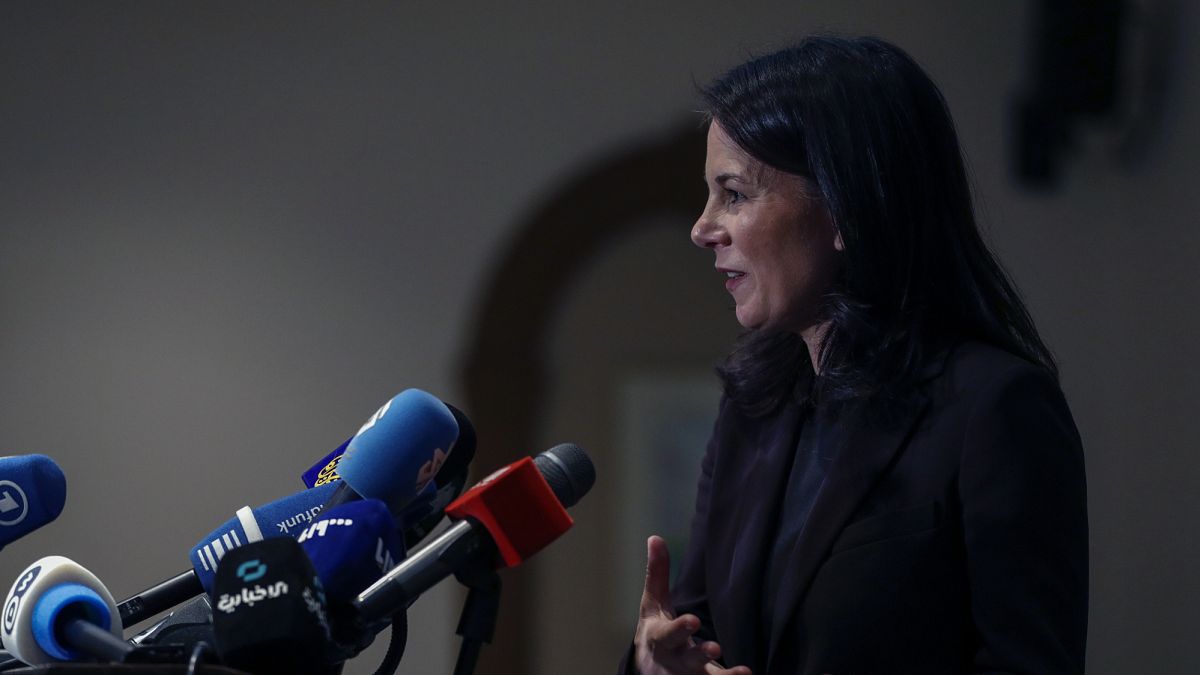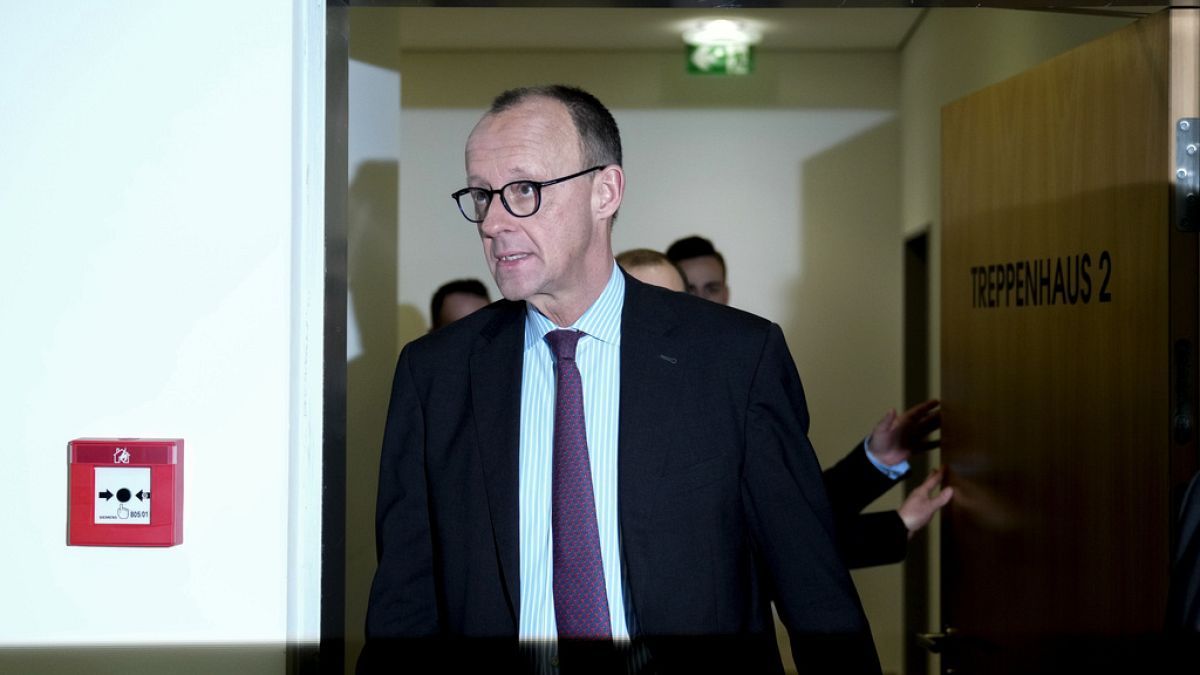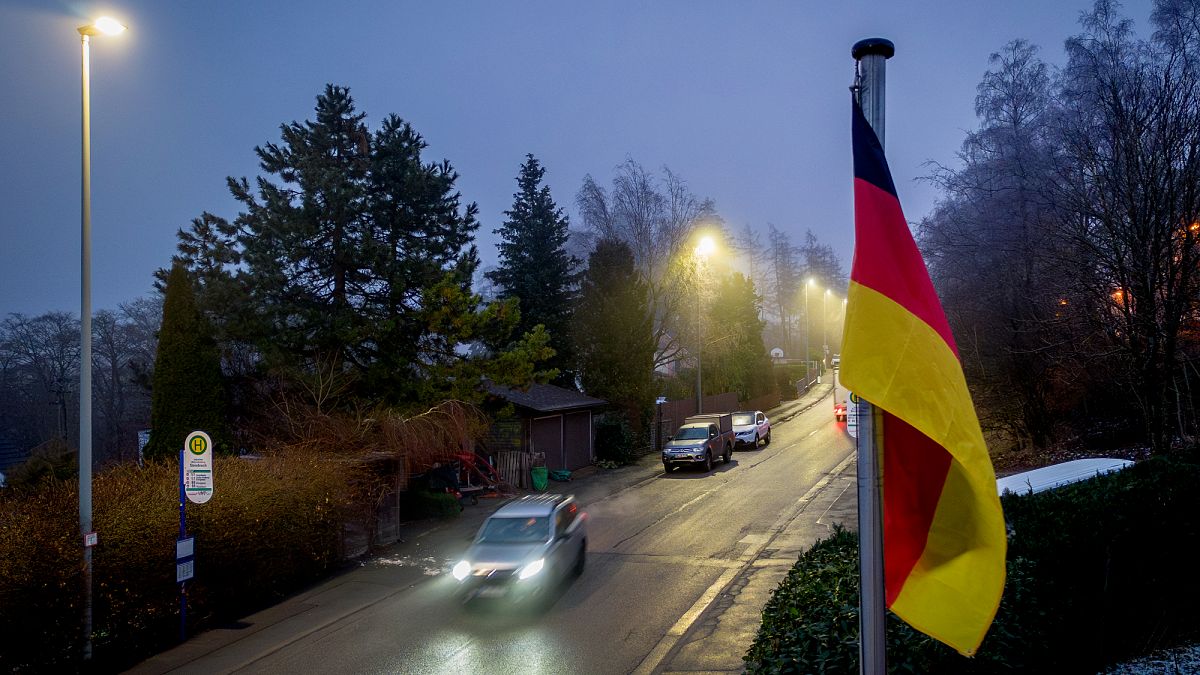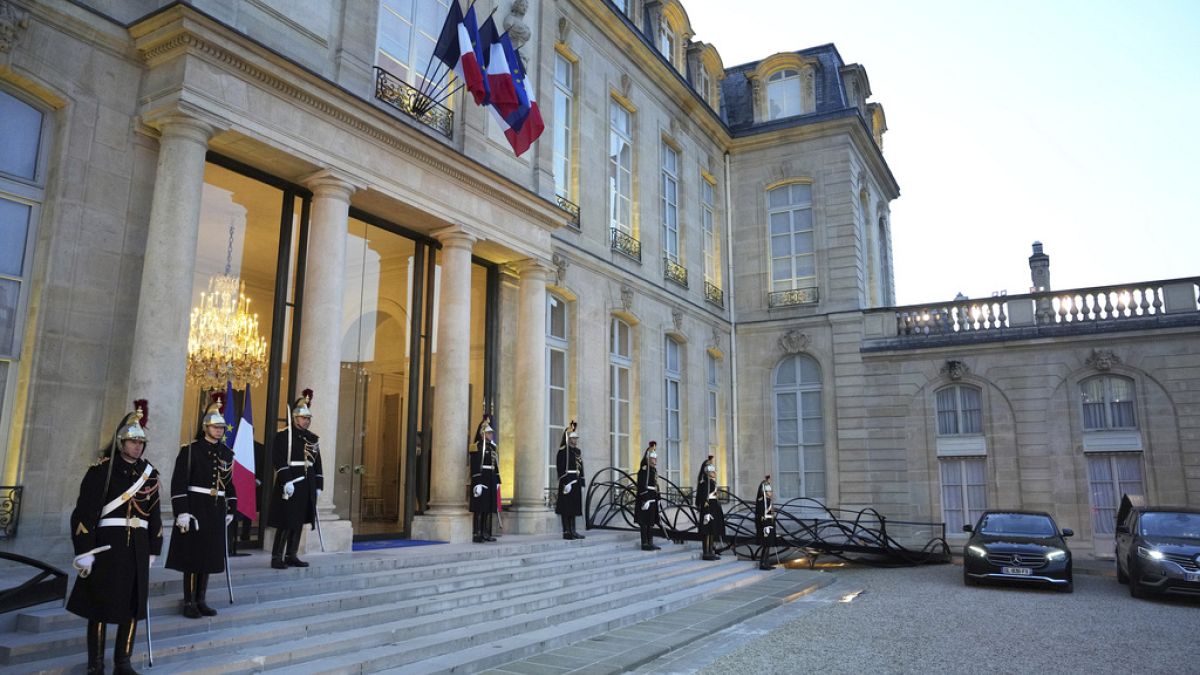Will Brandenburg follow the far-right surge in eastern Germany?
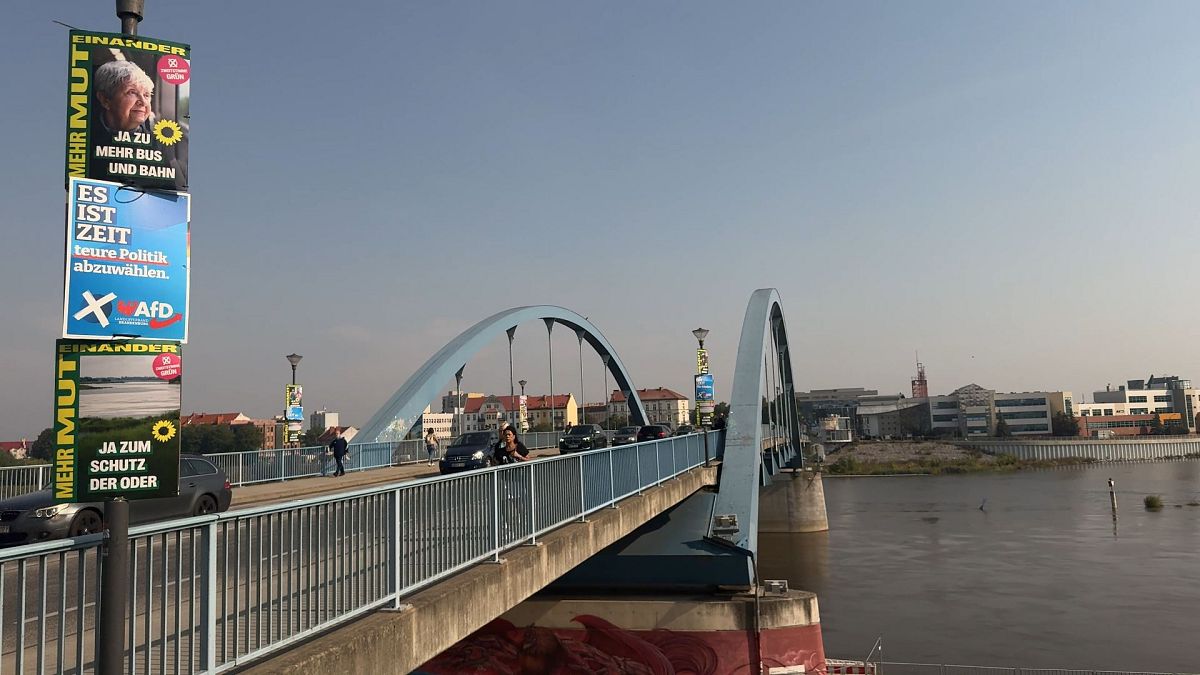
The third and final eastern German state of Brandenburg heads to the polls in just a couple of days. With the government already adopting far-right policies in a bid to hold on to voters, how is the vote likely to play out?
Brandenburg is the last state in the east of Germany to vote in regional elections ahead of next year’s federal vote.
The state has been governed by the Social Democrats since the 90s, when Germany reunified following the fall of the Berlin wall.
Following similar elections in other eastern states, where the far-right Alternative for Germany party (AfD) made significant gains, the whole of Germany is watching the Brandenburg vote closely to see if there are drastic changes in this state parliament too.
In Germany, 16 state elections take place every four or five years, and “all of them have some impact on federal politics because the federal states play a big role,” Timm Beichelt, professor of European studies at the European University Viadrina, told Euronews.
He said that based on the latest polls, “there will probably be a shrinking of two parties from the federal government’s traffic light coalition [made up of centre-left, centre-right and green parties]. So, there are already significant changes. The signal to the federal government is strong, and locally, too.”
However, he said the results may not be as dramatic as the other two eastern states of Thuringia and Saxony, which voted on 1 September.
In Thuringia, populist parties AfD and far-left Sahra Wagenknecht Alliance (BSW) gained more than 50% of votes, and AfD came in first — the first time that a far-right party had won a state election since Nazi Germany.
In Saxony, the AfD claimed almost as many most votes as the conservative Christian Democrats (CDU), which came first.
The polls suggest the populist parties in Brandenburg may win 40% of the votes.
“This means that 60% are still for established or mainstream parties. Who will win or lose remains to be seen,” Beichelt said.
Why is populism surging in Brandenburg?
While traditional parties may collectively be ahead of the populists, residents of Brandenburg believe that they’re not addressing their concerns, causing them to vote in protest, experts say.
They warn that security, migration and the high cost of living are at the top of people’s concerns, which is where the AfD and BSW come in: they both support reducing migration, watering down climate change policies and stopping weapons deliveries to Ukraine.
“People are very worried that the healthcare system will deteriorate,” Beichelt explained. “There’s a great concern about not being able to pay their bills anymore.”
“The war in Ukraine also weighs more heavily on the people in Brandenburg than on those in the rest of Germany,” he added. “So, from a political science perspective, it’s not too hard to understand why protest parties like the AfD are gaining so much support.”
Around 60,000 residents live in Frankfurt an der Oder, which sits at the border with Poland.
Euronews asked city residents what the mood is like ahead of the vote, and one pensioner echoed these concerns, saying that she was advised to travel as far as Berlin to see a dentist.
These problems are much worse in rural areas outside of cities, according to Beichelt.
“Two-thirds of all doctors in Brandenburg are over 60 years old,” he told Euronews. “That’s the healthcare system. The public transportation system? There’s no proper infrastructure for trains; it’s not very good. Many places only have service every two hours or none at all.”
He also blamed the constant construction and restoration works taking place, which make it even harder for those in rural areas to get around, on top of rising expenses.
The issue boils down to Brandenburg’s politicians not having adequately brought in significant reforms or addressed critical societal problems in the past two decades, according to Beichelt.
“Somehow, politics has failed to signal that they are addressing these issues,” he said. “Politics doesn’t care about the same things the people of Brandenburg care about. That’s why support for the AfD is also a reflection of disappointment with the established parties.”
A wider German impact
Brandenburg has been governed by SPD Minister President Dietmar Woidke since 2013, who has vowed to resign if the AfD wins the most votes on Sunday.
If SPD does badly, then Chancellor Olaf Scholz may be shunned as the party’s chancellor candidate in next year’s federal elections.
Yet the SPD’s time in office in Brandenburg may stand them in good stead in the election.
“It’s becoming clear in Brandenburg, that it will be similar to Saxony or many other state elections: incumbent ministers are popular in their states and pull their parties up in terms of votes,” Beichelt said.
As the states of Thuringia and Saxony struggle to form coalitions, Beichelt said the same won’t be true for Brandenburg when it comes to the AfD.
“There is likely to be a coalition with the Sahra Wagenknecht Alliance because there are only a few possible constellations where her party would not be needed,” he explained.
“For the German electoral or party system, it’s something new to have an alliance centred around a person. There’s no programme yet, just a name: Sahra Wagenknecht,” he added. “But in Europe, especially in Central and Eastern Europe, we already know these alliances that pop up around personalities and don’t tend to last long. If you apply this rule, you’d say that within a year or maybe five years at the latest, a party without a clear programme would dissolve on its own.”
Whatever happens in the state election, people should be cautious of extrapolating the results to the federal election scheduled for autumn next year as a lot can happen in 365 days, according to Beichelt.
“We also don’t know how the established parties in government, as well as the CDU and CSU, will develop,” he said. “Generally, it’s been said that populist parties tend to get higher shares in state elections. We’ve seen that in three state elections, and now we’ll see whether the trend continues, or if the federal elections will show more moderate results again.”
Brandenburg’s future
Brandenburg is important for Berlin, as it is home to the capital’s airport, as well as the Tesla factory, which employs thousands of people. Many people also move to the surrounding areas of Brandenburg as they struggle to find affordable housing in Berlin.
According to the Federal Office of Statistics, 17,000 Berliners moved to Brandenburg in 2023. The number of births in Brandenburg fell to its lowest level in almost 30 years.
The city of Frankfurt an der Oder is a university town, but walking around, it is clear much of the population is made up of pensioners.
Following the success of the AfD in Thuringia and Saxony, the federal government has adopted more right-wing policies, including introducing spot checks at all of its land border crossings, following a series of of deadly knife attacks by migrants. The checks at the German-Polish border, however, have been in place since last year.
All of the Frankfurt an der Oder residents Euronews spoke to mentioned migration as a reason for a negative atmosphere in the city.
Rana, who originally comes from Pakistan but has lived in Frankfurt an der Oder for the past five years, said that she has noticed an increase in migration over the past six months. She expects Brandenburg to primarily vote AfD.
“Recently there was some kind of crime issues, small, tiny issues like knife crimes and small instances of terrorism,” she said. “I think because of this, the local people are turning against immigrants.”
She doesn’t think the AfD would solve the city’s problems “because this is not ok to just say that no immigrants should be coming here.” She also thinks she would face more racism if the AfD is successful in the election on Sunday.
However, according to the Central Register of Foreigners, just under 200,000 foreigners were living in the state of Brandenburg as of March 2023.
The pensioner who Euronews spoke with, who has lived in Frankfurt an der Oder for decades, said she too finds the mood in the city negative. She also mentioned migration and said, “I don’t want to generalise, but I live in a high-rise building where 80% of the residents are Polish, 10% are resettlers, hermits, or whatever.”
She said that Frankfurt an der Oder is a commuter town, which has lost its sense of community: “It’s not about brotherhood or friendship or anything, it’s about where things are cheapest, back and forth. It has become a consumer society with lots of elbowing.”
Source: Euro News



